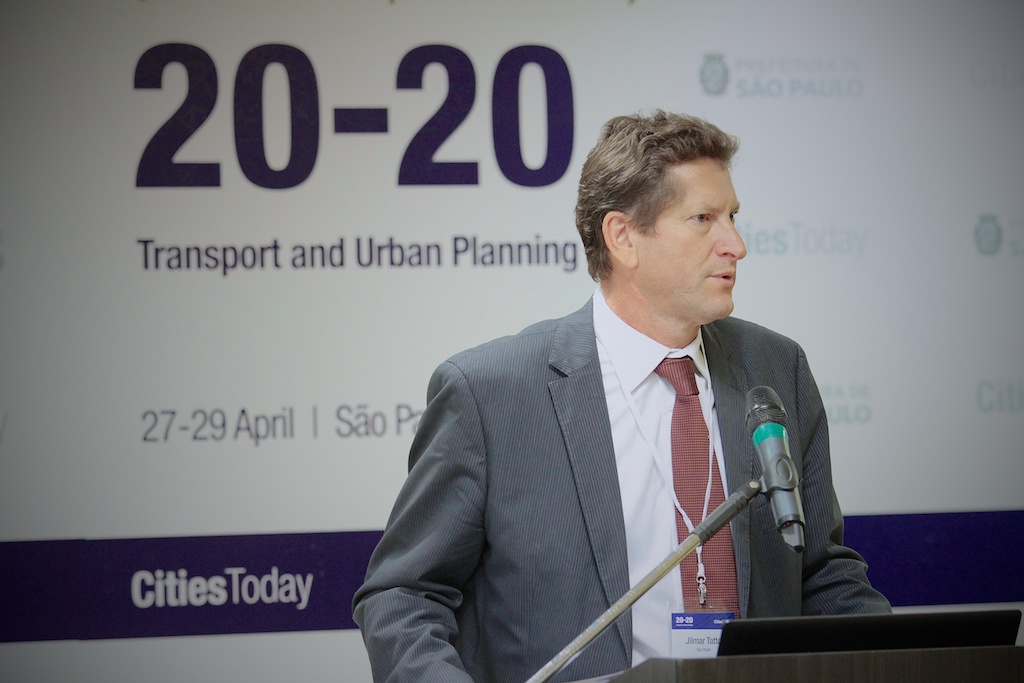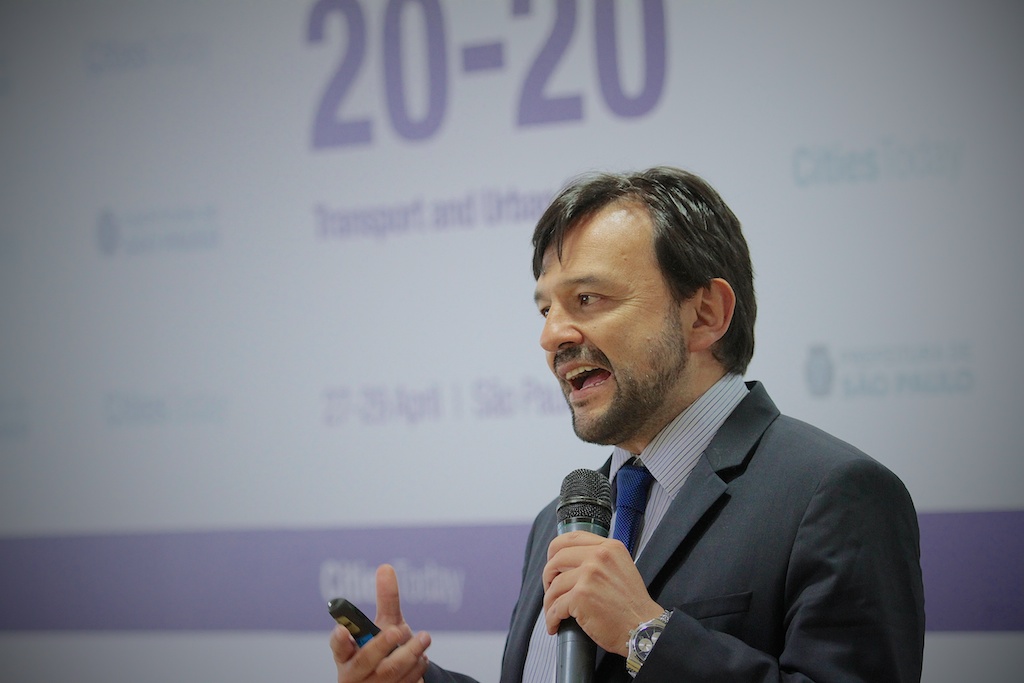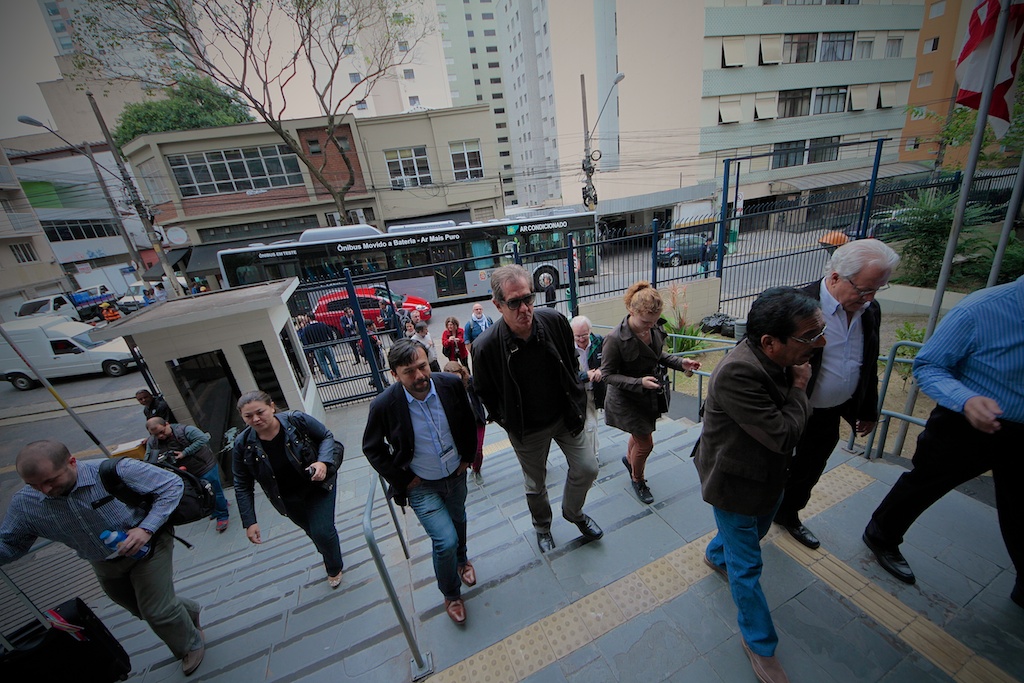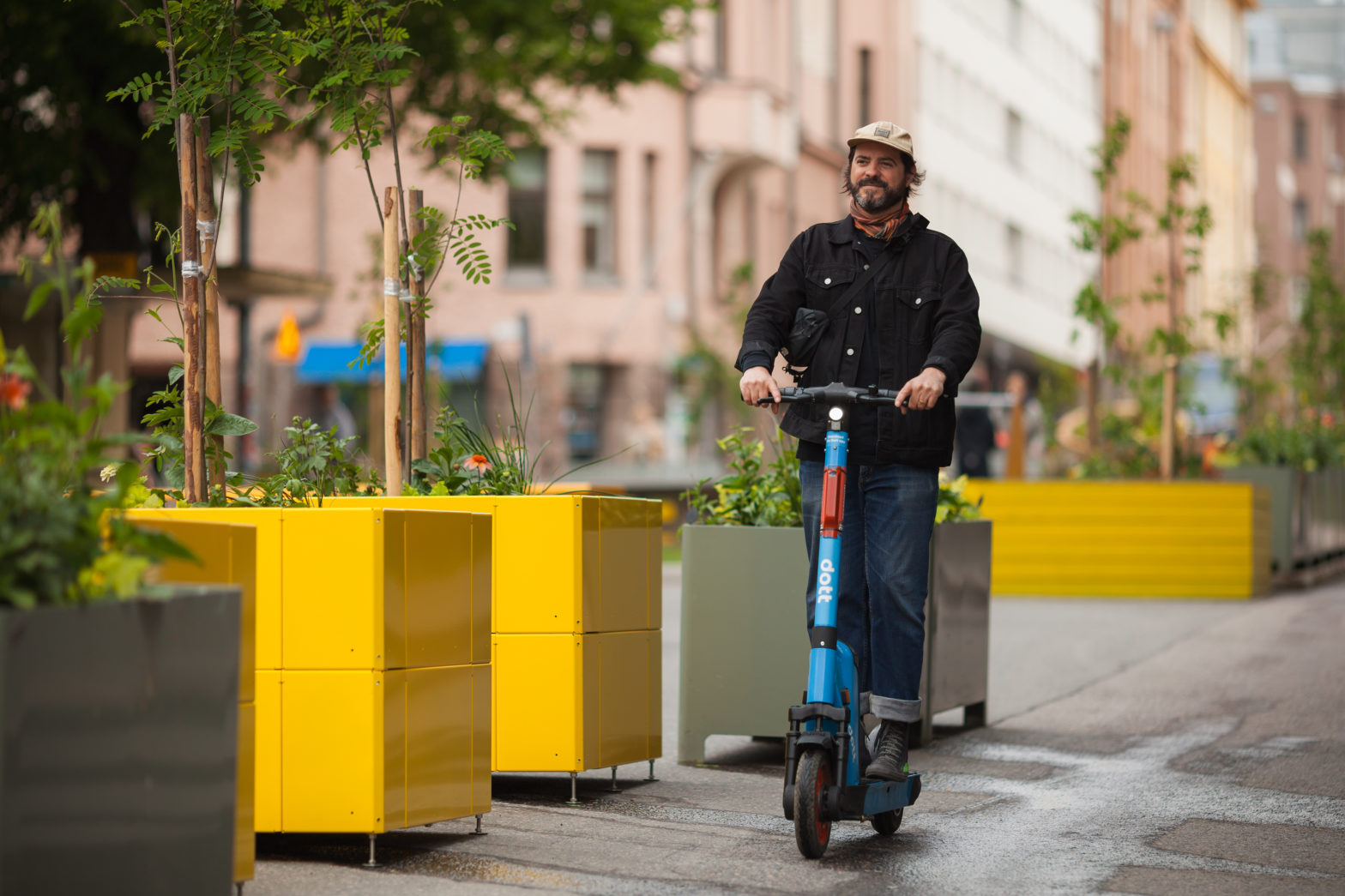
Photo: Evento-20-20_baixa266
LatAm cities converge on São Paulo in search of mobility solutions
29 April 2016
by Jonathan Andrews
Sixteen cities from across Latin America and a specially invited guest city from Europe, Budapest, met in São Paulo for the second of a series of international meetings, called the 20-20, organised by Cities Today.
At the meeting, which was held from 27 to 29 April, city representatives, including mayors and transport secretaries, came together in a roundtable format hosted by São Paulo to discuss urban mobility solutions with companies including Ericsson, Philips Lighting, BYD and Doppelmayr.
A session on finance, to seek ways to close the infrastructure gap, drew some animated discussions. São Paulo is keen to replicate Bogota’s ability to raise taxes on fuel rather than increase public transport fares.
“I was happy to see the presentation from Bogota because they already have a tax on fuel,” said Jilmar Tatto, Secretary of Transport, São Paulo. “Brazilian law doesn’t allow local governments to create new taxes. For this we need to change the constitution and so we are taking a proposal to Brasilia [the capital].”
These sentiments were echoed by Carlos Amastha, Mayor of Palmas–a city that is only 26 years old but is already facing transport challenges. He argued against the public transport user bearing the brunt through fare increases, which three years ago sparked mass protests across Brazil. Amastha said the money should instead be raised from private transport users to fund the gap in public transport.
Tatto also revealed how by reducing the speed limit in certain areas of São Paulo and creating more than 400 kilometres of bike paths have helped reduce pollution, improve traffic fluidity and reduced the number of accidents and deaths.
“When someone suffers an accident they have priority when they arrive in a hospital,” claimed Tatto. “This reduction in accidents and death has meant that the city can avoid building the equivalent of a new hospital–almost 400 beds.”
Cycling: the ‘new BRT’ for Latin America?
Increasing the number of bike paths is something that is being undertaken in several cities in the region, possibly becoming the next ‘Bus Rapid Transit’, which was first launched in Brazil in the 1970s and has since taken off in many cities around the world, particularly in Latin America.

“Cities like São Paulo, Buenos Aires, and Bogota are creating strong policies to give priority to the cyclist,” said Juan Pablo Bocarejo, Transport Secretary, from Bogota. “Dedicated infrastructure, shared bicycle schemes, empowered social organisations promoting clean mobility and a more holistic view are providing conditions to encourage bicycle use. Learning between Latin American cities has been very helpful.”
Bogota is leading the way, recording 650,000 trips made by bicycle every day, making up 6 percent of the total number of trips. For every three trips by car one trip is taken by bike.
“I was surprised by the fact that the priorities and challenges we face in Latin American cities are so similar,” added Bocarejo. “These include funding public transport, giving space to non-motorised transport, improving public space, using new technologies and reshaping cities using mass transit.”
 On the last day, members of the 20-20 were given the opportunity to see some of these policies in action with site visits to the new bike path stretching the length of São Paulo’s most expensive real estate–Paulista Avenue–and the Mercado bus terminal.
On the last day, members of the 20-20 were given the opportunity to see some of these policies in action with site visits to the new bike path stretching the length of São Paulo’s most expensive real estate–Paulista Avenue–and the Mercado bus terminal.
The 17 cities that participated were: Asuncion, Belo Horizonte, Bogota, Brasilia, Budapest, Buenos Aires, Cali, Campinas, Cochabamba, Curitiba, Lima, Montevideo, Palmas, Rio de Janeiro, Salvador, Santos and São Paulo.
The next 20-20 meeting will take place in Amsterdam, between 11-13 May, where 17 European cities will gather to discuss similar transport priorities alongside Ericsson, Car2Go, HERE, Transdev, VDL, sunhill technologies, and Doppelmayr.
For further information on joining the group or to receive the 20-20 reports (available in several languages), please contact: editorial@cities-today.com








